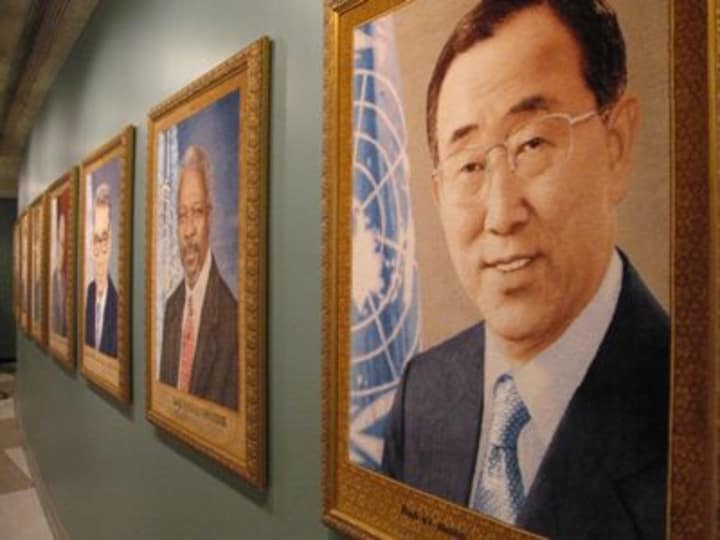
Ban Ki-moon is tied with Trgyve Lie and Kurt Waldheim as the worst United Nations secretary-general in history in the eyes of political science expert Thomas Weiss.
Weiss, who has authored books on the U.N. and is a professor at the City University of New York, said each of the three U.N. leaders “tarnished the U.N. in different ways and accomplished very little,” Guardian reports.
Lie, who served as U.N. chief from 1946 to 1952, grappled with diplomatic failures, while Waldheim, who was the U.N. leader from 1972 to 1981, faced controversies in his role during World War II.
Weiss’ tough remarks about the U.N. chief’s performance came on the heels of scathing comments made by Inga-Britt Ahlenius, outgoing head of the U.N.’s internal oversight office. As reported by Devex, Ahlenius accused Ban of undermining the authority of her office.
Interviews by the Guardian with senior U.N. staff, politicians and diplomats revealed widespread criticisms against Ban throughout the United Nations.
The Guardian reports that though Ban is deemed by the U.N. staff as nice, affable and hardworking, he has struggled to make an impact in international affairs. They also believed the U.N. has weakened under his term.
A retired U.N. official, Guardian says, pointed out the lack of English fluency as Ban’s biggest weakness. Steve Schlesinger, a former U.N. staffer, told the newspaper that he has been increasingly disenchanted with Ban, pointing out that the Copenhagen summit for climate change, an issue that Ban was identified with, was a big failure.
Defending himself, Ban told the Guardian that he welcomed the scrutiny but insisted that “some of such criticism has been based on misunderstanding.” The remarks about his performance did not fully appreciate the kind of person he is and the requirements of his job, he noted.
Ban considered climate change, U.N. administrative reform and promotion of human rights as the three major achievements of his leadership. He denied that the Copenhagen summit was a failure.
Ban also has staunch supporters. Some of his staff defended him in public, saying that their boss operates best out of the limelight.
Kiyo Akasaka, U.N. under-secretary-general for communications, sees the problem as a cultural one, a clash of East and West.
“I can see that the Western world has a different kind of expectation in its leaders, including the element of charisma,” he said.
Harvard professor Joseph Nye is still supportive of Ban and believes he will get a second term.
Despite criticisms, Ban is still willing to serve a second term.
“Of course, if member states want, I am ready to serve,” he said.




